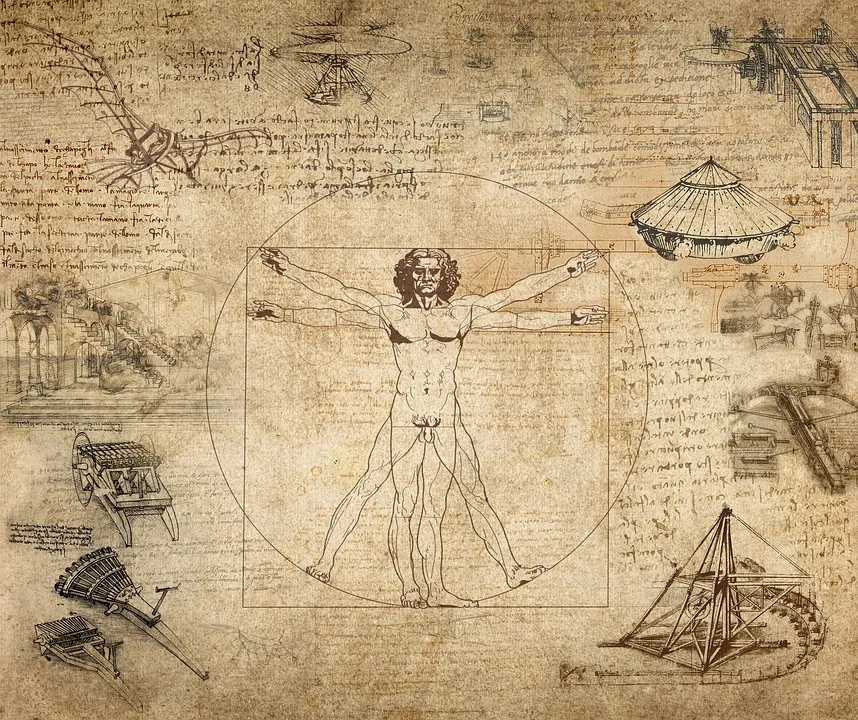We all strive to be original and innovative, and in fairness we all possess the tools to do great things, yet the process of being original and innovative is much more difficult than expected, why?

Well, I want to take it in a positive light because in most cases it's just an attitude issue, it's something that can be fixed. Most people believe the myth that groundbreaking ideas will strike when they least expect it. So why think too much? Ideas will come, let's just wait for them while watching our last favorite episode of Game of Thrones (I bet someone will leave a comment saying that they don't watch Game of Thrones, I don't care).
We like to attribute discoveries to the genius of a single person that single-handedly came up with amazing inventions. However, these are just myths.

Why do we like myths so much?
They make good stories and we tell ourselves these stories to alleviate the frustration of staring down at the cursor blinking on a white page of word. Ideas don't grow on trees and especially don't fall down from the sky like Netwon's apple. So by waiting for inspiration, we not only fool ourselves, but we are also distorting the creative process.
What we should look for are not moments of divine inspiration but an infinite number of trial and error. Small ideas that compounded over time to form a critical mass looking to burst.
Tim Berners-Lee did not come up with the concept of the World Wide Web right away, almost four decades of hard work preceded creation of internet. Waiting for a fully formed idea to show up is actually preventing us from developing it. But it's not just our fault. Often our working environment are not conducive of innovation. Can you immagine if Leonardo da Vinci had to constantly attend to meetings, answer to emails and write grants and progress reports to get funded ? I bet in that context he would have achieved only half of his innovations.

People today expect perfection right away, what your boss doesn't know is that ideas grow and in the beginning they need to be nurtured and guided on the right path.
Probably the first automobile made by Henry Ford was smelly, ugly and inefficient. He perfected it with time, so luckily for us he did not give up at the first difficulties.
Another myth is that of the lone inventor, for example today we attribute the invention of the light bulb to Thomas Edison when in fact we owe this innovation to two men: Humphry Davy and Joseph Swan. However, it just sounds like a good story to say that Thomas Edison did it on his own. Another similar story is that of Neil Armstrong, the first man to walk on the moon. He is getting all the glory while there were more than 400,000 people involved in that NASA mission and that made it possible.

In the title I mentioned Steemit, why?
Well, I see our platform the same way, many users are expecting a pre-packaged and perfectly working platform. Yet what most people ignore is that the platform we are all using today came into being as a result of many baby steps. @ned could be easily be compared to the Neil Armstrong of the situation, he is the face but behind him there is a team of several people working to fix bugs and implement ideas. And then there is the most important resource of all, us. With our work and with the content we are creating every day we are generating value, and the quality of our work and our efforts in promoting Steem will dictate its success.
If we look back in history we can find countless examples of great inventions that were at first dismissed. For example Alexander Graham Bell created the telephone. When he presented it to a big communication company he was dismissed and he was told he created a useless toy. In most cases people are afraid of change and their first instinct is to reject new ideas.
Change is a big deal for us. It's no coincidence that some of what we consider the most stressful events in our lives like moving house, marriage, divorce or changing job they all share a common thread, change. Nobody wants to deal with uncertainty.
Another fairy tale is that of the meritocracy. We are constantly being told that the best ideas wins. Unfortunately reality is that the most stubborn and lucky person wins, not the best one. A sentence from Stephen King summarizes this concept really well:
Without hard work, talent is cheaper than table salt
Steemit and its infamous trending pages show this really well, many crappy posts rank high while well crafted posts float on a sea of garbage content. This is not meant to be a complaint but a feedback mechanism. Steemit is still a small idea that need to grow further. It's up to us to nurture it. So we should ask ourselves the questions:
- Are we creating an environment conducive to innovation?
- Are we doing enough to enable new users to seed their ideas and to grow?
I think the concept of communities is very interesting and if used well they could help our platform thrive. Let's wait and see if that will be just another baby step or a burst of innovation.
References:
- https://en.wikipedia.org/wiki/Tim_Berners-Lee
- http://www.enchantedlearning.com/inventors/edison/lightbulb.shtml
- https://en.wikipedia.org/wiki/Apollo_program
Communities that are supporting me are:

Immagine CC0 Creative Commons, si ringrazia @mrazura per il logo **ITASTEM**. **CLICK HERE AND VOTE FOR DAVINCI.WITNESS**

Logo created by @vogliofatti

To join @steemstem you can go to this discord server.